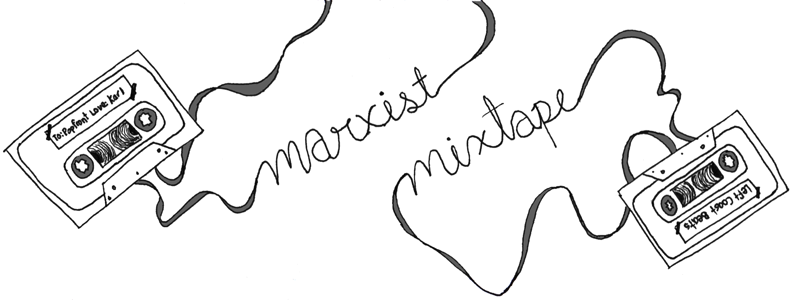Taking Lorde’s 2013 hit “Royals” at face value, the song offers a critique of consumer-oriented capitalism and the cynical culture industry that drives it by juxtaposing the opulent wealth celebrated on Top 40 radio (is that term even meaningful anymore?) with the lived experience of its listeners, who have “never seen a diamond in the flesh” and for whom the life described in those songs is mere “fantasy.” And as was almost immediately pointed out, some of that ish was kinda racist. That is, Lorde makes her case against capital by targeting particular forms of wealth (gold teeth, Cristal, Maybach) that are strongly associated with popular black culture— or at least hip-hop, as one side of it. At best, black culture is collateral damage, and at worst, Lorde allies herself with the forces of white supremacy that claim their power in part by dismissing strategies of survival in black communities.
Now, I’m not about to say that she shouldn’t have known better or that lyrics by a fifteen-year-old are excusable—not to mention the number of other industry workers and executives involved with the song’s production, marketing, et al—because white folks need to be held accountable at every level. But the fact that the song was written not by an American white person, embedded in the particular set of race relations that in part gave historical rise to hip-hop as a cultural form, but by a New Zealander should give us pause. The racialized content of the song reveals the United States’ global cultural imperialism—in how it exports an American version of whiteness, with its sites of racial conflict. Indeed, another arm of that same global imperialism may be responsible for her hometown, at a cultural margin, being “torn up.”
Curious, then, is T-Pain’s remix of the song featuring Young Cash that was simultaneously promoted and mocked on a number of music blogs last month for “not getting the concept of Royals” and apparently using Lorde’s song to celebrate the very materialism she criticizes. Perhaps some of that materialism is present—references to car culture, “money over everything”—and apart from that, the sexism endemic to popular culture (“Let me see you get loose, girl”) needs to get called out. But there is a kind of desperation that underlies T-Pain and Young Cash’s stories about their own hometowns and their current wealth. YC’s verse relies heavily on some of hip-hop’s well-worn tropes—“Now we makin’ millions / Got enough money to take care of our children / And I don’t care, cause we came from nothing.” Yet these verses also demonstrate the stakes of celebrity, and the access to the global culture machine fame entails: he and T-Pain otherwise would not have the resources to care for their children. In marginalized communities, capital is an all or nothing game. And in that game where privation is the penalty, loyalty to family and friends (“My dog came back for me”) is a crucial strategy in undermining its Malthusian logic.
In this sense, T-Pain’s remix of Lorde represents a meeting at the very cultural center by two members of communities that have been marginalized in radically different ways. At those margins, capital promotes its ideology through avenues such as popular music, even though it can only be accessed by only a few who work in the service of its promotion—which now includes international pop-star Lorde herself. T-Pain’s remix isn’t a parody and it isn’t a pointed criticism of her posturing—though it does turn her message on its head, often to comic effect. Rather, the remix is a message from one professional to another: Welcome to access. Use it to support your community.
